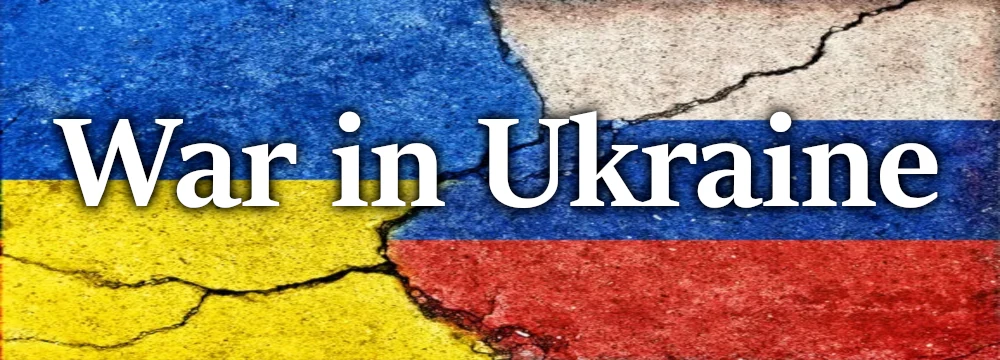Ukraine War Escalates: CHINESE Soldiers Captured By Ukraine!

The recent capture of Chinese soldiers by Ukrainian forces in the eastern Donetsk region has sent shockwaves through the international community. This development, confirmed by Ukrainian President Volodymyr Zelenskyy, marks a significant escalation in the ongoing conflict between Russia and Ukraine; it is nothing short of astonishing. The presence of Chinese nationals fighting alongside Russian troops, following a firefight with Ukrainian soldiers, is a wildly provocative move by Moscow that defies all rational expectations of restraint. As the war drags on into its fourth year, Russia’s decision to involve not just North Korean but also Chinese soldiers on the front lines suggests a reckless willingness to risk global confrontation, leaving observers around the world in utter disbelief.
The conflict in Ukraine, which erupted with Russia’s full-scale invasion in February 2022, has morphed into a grinding war of attrition. Ukrainian forces, supported by just enough military aid from Western nations to keep them in the fight but not enough to win, have mounted a fierce defense, thwarting Russia’s initial hopes of a quick victory. Faced with heavy losses and dwindling resources, Moscow has resorted to desperate measures, including the use of foreign fighters from their allied nations like North Korea and now, shockingly, China. This escalation reflects Russia’s determination to cling to its faltering campaign, even if it means dragging its international partners into the mire of a conflict that grows more volatile by the day.
For China and North Korea, the decision to place soldiers on Ukraine’s front lines offers tangible strategic benefits, despite the risks. Foremost among these is the chance to provide their militaries with real-world combat experience, a rare commodity for armies that have not fought in major conflicts for decades. The Ukrainian battlefield serves as a brutal proving ground where troops can hone their skills, test their equipment, and adapt to the chaos of modern warfare. Beyond this, supporting Russia strengthens their alliances with Moscow, potentially securing economic and political rewards, while also projecting their military might to the world, a move that could bolster their standing in global geopolitics.
Yet, the audacity of Russia’s actions cannot be overstated. Deploying Chinese soldiers alongside North Korean troops risks transforming a regional war into a global crisis, a move so provocative it defies belief. The capture of these fighters, as reported by outlets like CNN, has already heightened tensions, with the potential to draw western powers into the fray. This escalation threatens to destabilize an already fragile international order, pushing the conflict toward a point of no return where containment becomes impossible.
The diplomatic repercussions are unfolding in real time, amplifying the disbelief at Russia’s gambit. Ukraine swiftly summoned China’s chargé d’affaires to explain the presence of its nationals in Russian ranks, a demand reported by POLITICO. China’s foreign ministry has scrambled to distance itself, denying official involvement and claiming it is investigating, but the stain on its neutrality is hard to wash away. For Russia, this move could deepen its isolation, inviting harsher sanctions and further alienating Western nations already appalled by its aggression.
Public perception, too, stands to shift dramatically in response to this development. In Russia, the sight of Chinese and North Korean soldiers fighting its battles may erode the Kremlin’s image of a self-reliant power, exposing its vulnerabilities to a weary populace. Globally, the news could rally renewed support for Ukraine, as citizens and leaders alike recoil at Russia’s reliance on foreign troops to prop up its war machine. This shift could pressure Western governments to escalate their involvement, turning public outrage into tangible action on Ukraine’s behalf.
The presence of Chinese soldiers in Russian ranks offers European countries a compelling justification to deploy their own troops to Ukraine’s aid. Russia’s internationalization of the conflict, by pulling in fighters from major powers, reframes the war as a global security threat rather than a localized dispute. Nations bordering Ukraine, keenly aware of the risks of spillover, now have a stronger case to intervene directly, protecting their own interests while upholding the principle of sovereignty. This development, as noted by ABC News, could mark a turning point in European resolve.
Sending European troops could serve to counterbalance the influx of Chinese and North Korean forces, leveling the playing field for Ukraine. Additional manpower and expertise from Europe would bolster Ukrainian defenses, potentially tipping the scales against a Russian offensive strained by its reliance on foreign support. Such a deployment might also act as a strategic signal, warning Moscow that further escalation could entangle NATO, a scenario the Kremlin has long sought to avoid. This counterweight could force Russia to rethink its approach, perhaps pushing it toward diplomacy rather than deeper entanglement.
The involvement of these foreign fighters is poised to reignite European support for Ukraine at a critical juncture. War fatigue has crept into some Western capitals, with debates over sustained aid growing louder as the conflict drags on. However, the shocking revelation of Chinese soldiers in the fight, as documented by Reuters, could jolt publics and policymakers awake, spurring calls for more robust assistance. This might translate into not just more weapons but also boots on the ground, a step once deemed unthinkable but now increasingly plausible.
Moreover, European troop deployments could deter Russia from pushing the conflict further into uncharted territory. A visible commitment of forces would underscore that any additional aggression would meet fierce resistance, potentially stabilizing the front lines and paving the way for talks. This deterrence hinges on careful execution, ensuring that European actions bolster Ukraine without sparking a direct clash with Russia that could spiral out of control. The balance is delicate, but the need to respond to Russia’s provocations leaves little room for hesitation.
In conclusion, the capture of Chinese soldiers fighting for Russia in Ukraine is a staggering escalation that lays bare Moscow’s willingness to gamble with global stability. By enlisting not just North Korean but Chinese troops, Russia has crossed a line that justifies a bolder European response, including the deployment of troops to support Ukraine. The advantages China and North Korea gain, from combat experience to geopolitical leverage, only heighten the stakes, making Russia’s actions all the more incomprehensible. As the world watches in disbelief, the imperative for a united Western stand grows clearer, demanding action to safeguard Ukraine and the broader international order.









